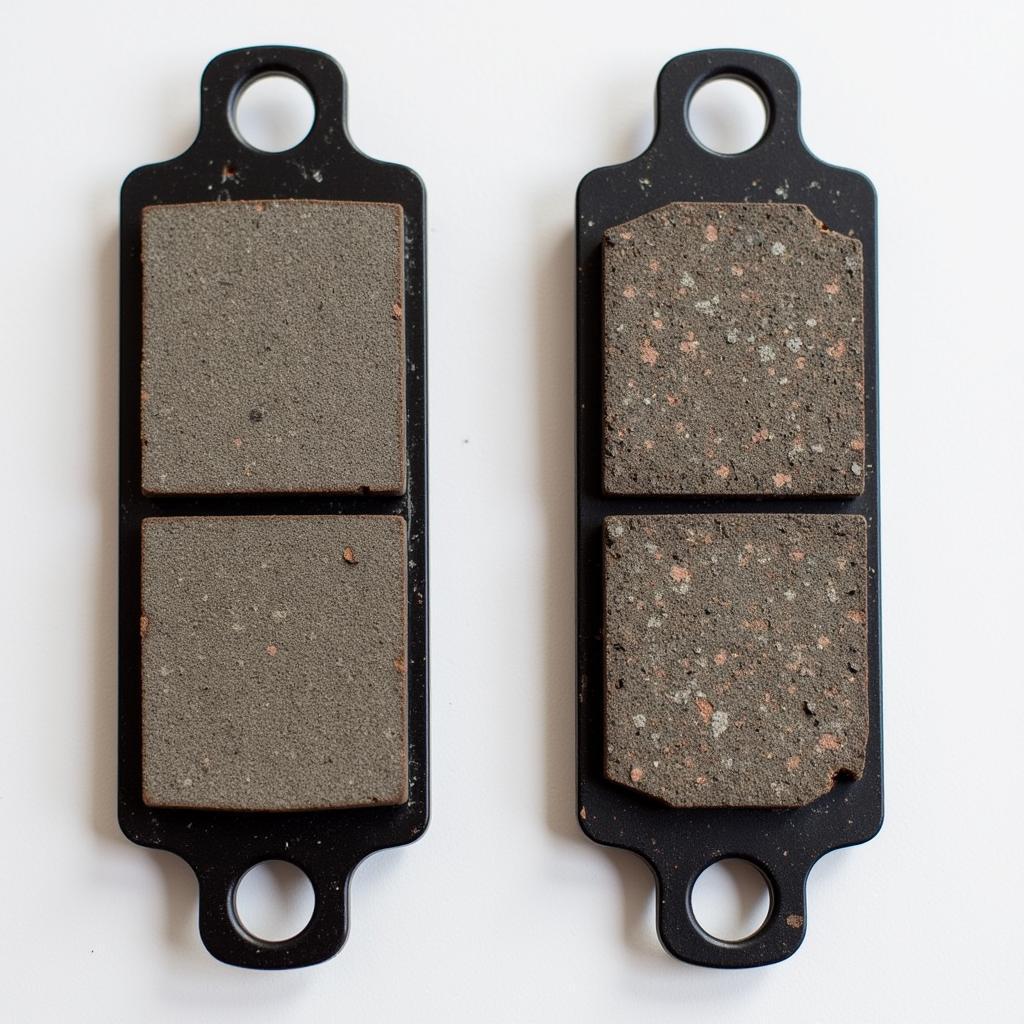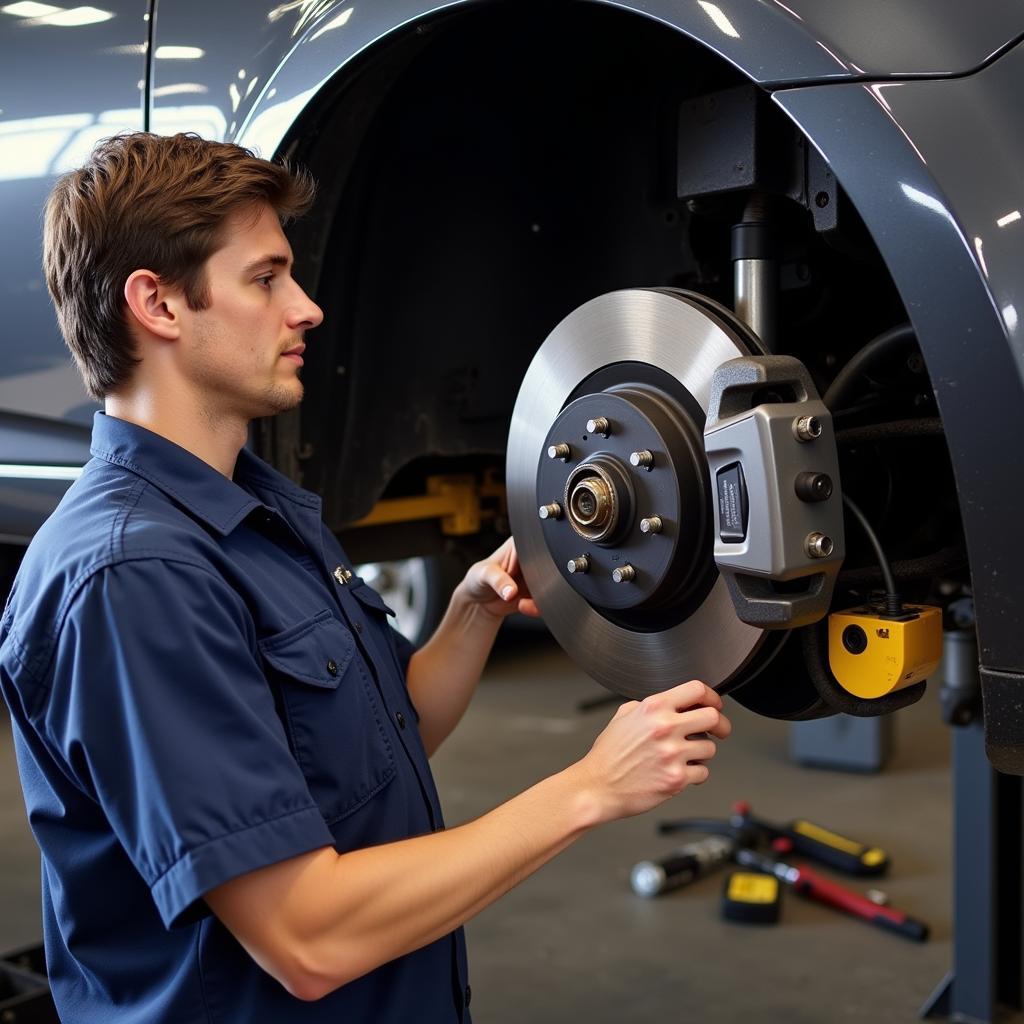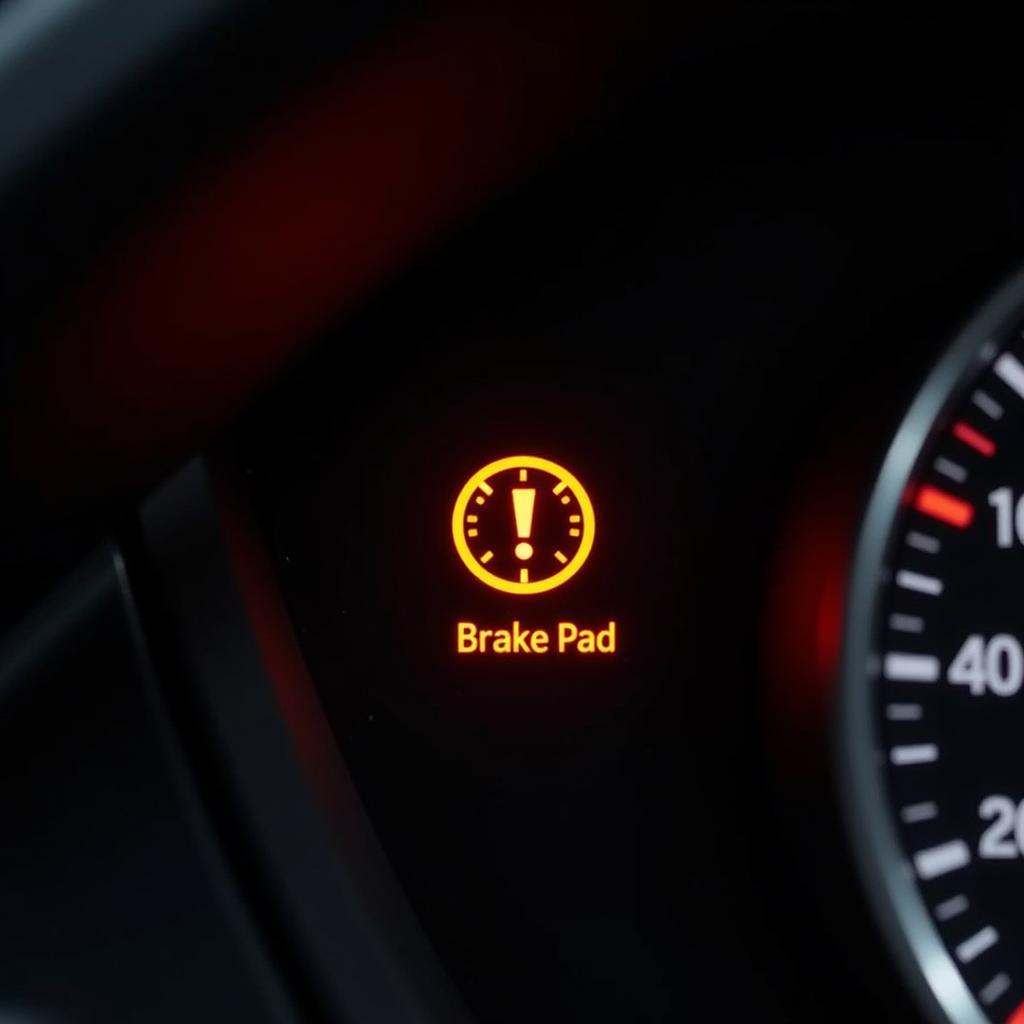The brake system warning light illuminating on your Chevy Sonic dashboard can be a nerve-wracking experience. It’s a crucial safety indicator that shouldn’t be ignored. This comprehensive guide delves into the potential causes behind the brake system warning light in your Chevy Sonic and provides insights on how to diagnose and address the issue.
Understanding Your Chevy Sonic’s Brake Warning System
Your Chevy Sonic is equipped with a sophisticated system designed to alert you to potential issues with your brakes. This system uses sensors to monitor various components and triggers the warning light on your dashboard if it detects a problem.
While the warning light itself doesn’t pinpoint the exact issue, it serves as a crucial first step in diagnosing and rectifying any brake-related malfunctions. Ignoring this warning could lead to more serious problems and compromise your safety on the road.
Common Causes of a Brake System Warning Light
Several factors can trigger the brake system warning light in your Chevy Sonic. Here’s a breakdown of some common culprits:
-
Low Brake Fluid: This is one of the most frequent reasons for the warning light to activate. Brake fluid is the lifeblood of your braking system, and a leak or low fluid level can significantly impair braking performance.
-
Worn Brake Pads: Brake pads naturally wear down over time. When they reach a certain level of wear, the brake pad wear sensor triggers the warning light to signal the need for replacement.
-
Faulty Brake Caliper: The brake caliper houses the piston that pushes the brake pads against the rotor, creating the friction needed to slow down or stop your vehicle. A sticking or leaking caliper can disrupt this process and trigger the warning light.
-
ABS Issue: Your Chevy Sonic is equipped with an Anti-lock Braking System (ABS). If the ABS module or a wheel speed sensor malfunctions, it can trigger the brake system warning light.
-
Parking Brake Engaged: While seemingly obvious, it’s easy to overlook. If the parking brake is even slightly engaged, it can illuminate the brake system warning light.
Diagnosing the Brake System Warning Light
Identifying the root cause of the brake system warning light requires a systematic approach:
-
Check the Parking Brake: Ensure the parking brake is fully disengaged. Sometimes, a slight bump can partially engage it, triggering the warning light.
-
Inspect Brake Fluid Level: Carefully open the brake fluid reservoir and check the fluid level. If it’s below the “Min” mark, add the appropriate brake fluid, ensuring it meets the specifications outlined in your Chevy Sonic’s owner’s manual.
-
Visually Inspect the Brake System: Examine the brake lines, calipers, and brake pads for any signs of leaks, damage, or excessive wear. Pay close attention to the brake hoses for cracks, bulges, or leaks.
 Chevy Sonic Brake Pad Wear
Chevy Sonic Brake Pad Wear
When to Seek Professional Help
While some causes of the brake system warning light can be addressed with basic troubleshooting, others require the expertise of a qualified mechanic. If you’re uncomfortable performing these checks yourself, or if you suspect a more complex issue like a faulty ABS module, it’s best to take your Chevy Sonic to a trusted mechanic.
“When it comes to brakes, it’s always better to err on the side of caution,” says John Smith, a seasoned automotive engineer with over 20 years of experience. “Attempting to diagnose or repair complex brake issues without proper knowledge and tools can be dangerous.”
Remote Diagnostics: A Modern Solution
In today’s technologically advanced world, remote diagnostics offer a convenient and efficient way to pinpoint the cause of the brake system warning light. Through specialized software and equipment, certified technicians can remotely access your Chevy Sonic’s onboard computer, retrieve diagnostic trouble codes (DTCs), and identify the source of the problem.
This remote diagnostic approach offers several advantages:
- Convenience: You can have your car diagnosed from the comfort of your home or office, without having to visit a repair shop.
- Speed: Remote diagnostics can often be completed faster than traditional in-person diagnostics.
- Accuracy: Retrieving DTCs provides a precise understanding of the issue, leading to more efficient repairs.
seat ibiza 1.4 epc warning light
Addressing the Underlying Issue
Once you’ve identified the cause of the brake system warning light, it’s crucial to address the issue promptly. This may involve:
- Adding Brake Fluid: If the fluid level is low, topping it off with the correct type of brake fluid can resolve the issue. However, it’s crucial to identify and fix any underlying leaks.
- Replacing Worn Brake Pads: Worn brake pads require immediate replacement to ensure optimal braking performance and safety.
- Repairing or Replacing Brake Components: Damaged brake lines, calipers, or other components may need repair or replacement.
- Addressing ABS Issues: Faults within the ABS system, such as a malfunctioning module or sensor, necessitate professional attention.
 Chevy Sonic Brake System Repair
Chevy Sonic Brake System Repair
Conclusion
The brake system warning light in your Chevy Sonic is a crucial safety indicator that should never be ignored. By understanding the potential causes, performing basic troubleshooting, and seeking professional help when necessary, you can ensure your braking system remains in optimal condition, keeping you safe on the road. Remember, a well-maintained brake system is paramount for your safety and the safety of others.
seat ibiza engine diagnosis warning light
FAQs
Q: Can I still drive my Chevy Sonic with the brake system warning light on?
A: While it might be tempting to continue driving, it’s highly discouraged. Driving with a compromised braking system can be extremely dangerous.
Q: How often should I check my Chevy Sonic’s brake fluid level?
A: It’s a good practice to check your brake fluid level at least once a month and more frequently if you notice any changes in your brake pedal feel.
Q: How long can I drive on worn brake pads after the warning light comes on?
A: It’s impossible to provide a specific timeframe. As soon as the brake pad wear sensor triggers the warning light, it’s crucial to have your brake pads inspected and replaced as needed.
Q: How much does it cost to replace brake pads on a Chevy Sonic?
A: The cost varies depending on factors like labor rates and the type of brake pads used. It’s best to consult a mechanic for an accurate estimate.
Q: Can I use any brake fluid in my Chevy Sonic?
A: No, using the wrong type of brake fluid can damage your braking system. Always refer to your owner’s manual for the recommended brake fluid type.

